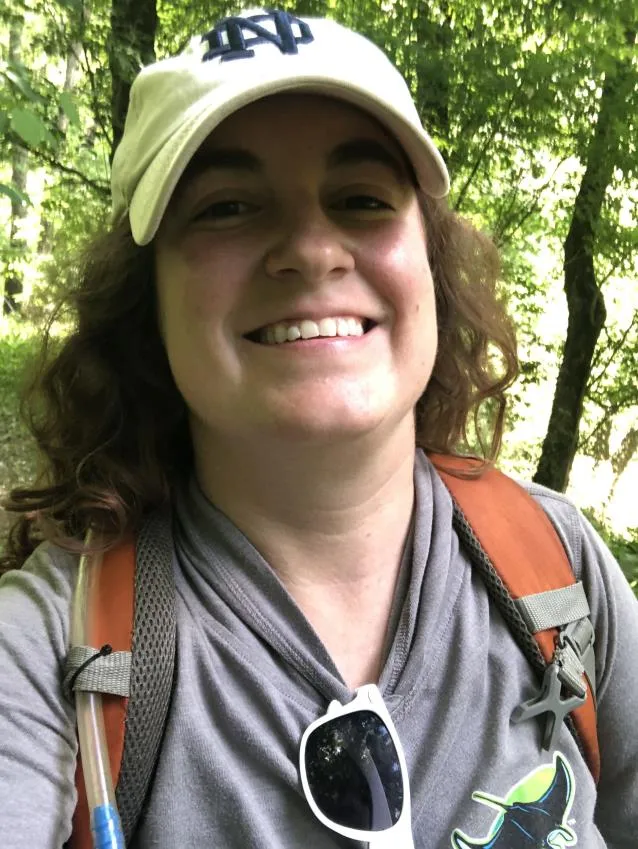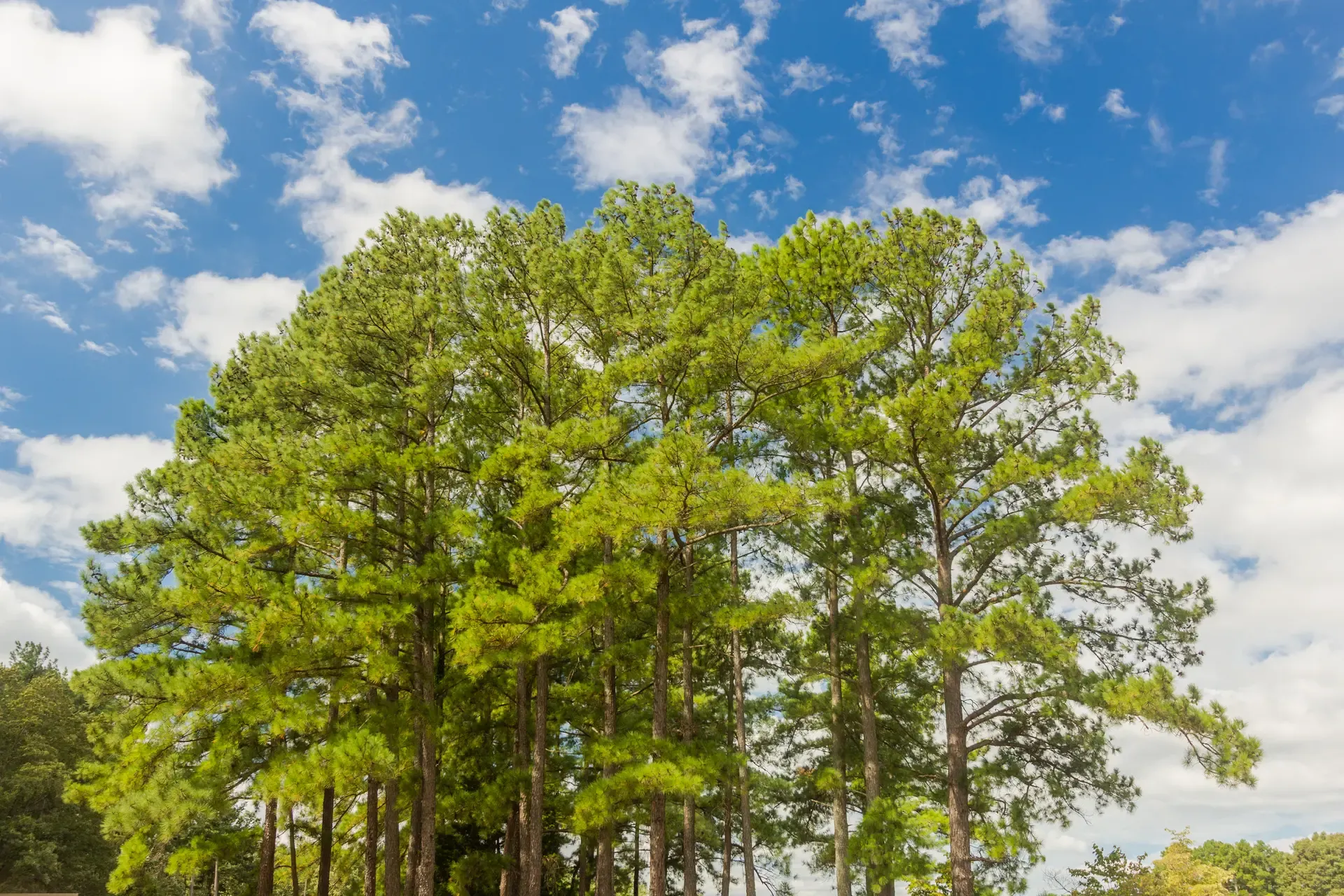Three Ways the Family Forest Carbon Program Is Helping Increase Sustainable Forestry

Throughout our nation’s history, rural lands have played an integral part in the health and well-being of our economies, communities, and forests. Timber, lumber, paper, packaging, and so many other wood products remain crucial to sustaining our ways of life — as do clean water and air, wildlife habitat, and the recreational values these lands offer. Today, the newly emergent voluntary carbon market presents another opportunity to leverage forestland for the benefit of our country’s land and its people: through capturing and storing more carbon in our trees, above what we already do today.
But is this market good for family forests and the long-term health and sustainability of these lands? And what about the impact on the forest products industry, given that we know that forest products markets are an important part of helping family forest owners care for their land, their families, and their communities — all while keeping their forests as forests?
As an organization with more than 80 years of experience helping family forest owners create meaningful conservation impact, our answer is a resounding yes. Done right, the voluntary carbon market is a powerful tool that can improve the health and sustainability of America’s family forests and drive globally significant, real impact for climate change while also supporting a thriving and growing forest products industry. This market is still forming, the rules are still being written, and it’s important to get it right.
This is why AFF, in partnership with The Nature Conservancy, developed the Family Forest Carbon Program. The program helps family forest owners participate in this market and do their part in tackling climate change, all while increasing the health and resilience of their land. But how?
We know that family forests are critical in the race to mitigate climate change and activating these forests as a climate solution will have incredible benefit on people and the planet, including the long-term sustainability of our family forests.
Here are just three of the many ways that the Family Forest Carbon Program is supporting AFF’s long-held core values around forest sustainability, while remaining both people and planet-centered.
We help landowners manage their land sustainably.
FFCP helps family forest owners implement land management practices that increase their forests’ health and productivity over time, while also capturing and storing more carbon.
FFCP helps family forest owners implement land management practices that increase their forests’ health and productivity over time, while also capturing and storing more carbon.
Take, for example, the land management practices FFCP is implementing in enrolled forests in the Central Appalachian region. A common forest practice in this region is something called “high-grading.” High-grading is when someone takes the highest quality trees among their forest stock from the land and leaves the worst. It often occurs when a forest owner is faced with either a pressing economic situation where they need to maximize returns from their land, or they are presented with an offer and don’t have the context to know what’s good for their land’s long-term health and viability. FFCP creates an alternative path for family landowners, providing financial and technical help to avoid high-grading and keep their high-quality trees longer, while still harvesting sustainably. In the long term, landowners can generate a higher return on investment for their forest.
Similarly, in Northeastern and Midwestern forests, we are helping landowners keep their trees growing longer, pulling more carbon out of the atmosphere and storing it for eventual use in high-quality, long-lived wood products. With this focus on bigger trees and higher quality products, we recognize the need to minimally harvest within the contract period to create more structural and species diversity, and more long-term forest health and resilience. Put simply, our program’s intervention acts as an insurance mechanism that allows land investments to thrive into the future.
To be clear, these actions are not right for every forest and every landowner. In some forests, the best thing to do might be to harvest more than our practice would allow. This is why we employ professional foresters to work with landowners and also utilize eligibility parameters to ensure we’re applying these practices to forests that will create the best impact for the climate and the long-term health of the land.
We bring knowledge and expertise to rural landowners.
As of 2018, only 11 percent of family forest owners nationwide are working with a professional forester or have a professional management plan.
Our program also addresses one of the most vexing challenges of family forest conservation: access to professional knowledge and technical expertise. As of 2018, only 11 percent of family forest owners nationwide are working with a professional forester or have a professional management plan. We know that owners that work with a forester and have a plan for the future of their land are better able to take care of it and ensure that it delivers all the many benefits we all rely on.
FFCP provides enrolled landowners with professional foresters, management plans, and access to an ongoing community of peers and professionals to assist with land management over the long term. In this way, FFCP and the American Tree Farm System, AFF’s largest and oldest sustainable woodlands program, have much in common. We are finding that approximately 60 percent of the landowners enrolling in FFCP have never had this help. Engaging these previously unengaged landowners actually brings more landowners into sustainable forestry and thus more wood into the forest products market, further bolstering rural economies.
Through FFCP, we also help landowners that have not had access to this kind of help in the past for economic or discriminatory reasons. While we don’t have all the answers, AFF and FFCP, in partnership with incredible leaders like the Center for Heirs’ Property Preservation, are finding ways to break down barriers so all landowners, especially those that have historically been left out of accessing the tools needed to properly care for their land, can finally get the support they need.
We support sustainable harvesting.
The best way to maximize the role of forests as a climate solution is to both increase the carbon capture and storage potential of our forests while also increasing the use of renewable, sustainable forest products in place of fossil fuel intensive products.
AFF not only supports landowners sustainably harvesting their land, but we have also directly factored in the carbon value of harvested wood products in our carbon accounting for FFCP. Some might think the best thing to do for the climate is to stop harvesting trees. The science says otherwise. Some forests need to be grown longer, some forests need to be harvested sustainably and made into products that displace fossil fuel intensive products, and some need to be utilized in both ways. In fact, the best way to maximize the role of forests as a climate solution is to both increase the carbon capture and storage potential of our forests while also increasing the use of renewable, sustainable forest products in place of fossil fuel intensive products.
The Family Forest Carbon Program recognizes this complexity and is not a one-size-fits-all prescription for all forests. To be clear, this is not easy work – balancing long-term sustainability and health with the carbon capture and storage our planet desperately needs right now.
AFF is innovating every day, working with a whole range of partners, to expand FFCP to more forests and more owners, and support more forest climate impact and sustainable forestry on family lands. We know that family forests are critical in the race to mitigate climate change and activating these forests as a climate solution will have incredible benefit on people and the planet, including the long-term sustainability of our family forests.
To learn more about how the Family Forest Carbon Program supports sustainable forestry, please visit familyforestcarbon.org.
Related Articles

July 1, 2025
Forester Spotlight: Sarah Cawood
We’re excited to highlight Sarah Cawood, a dedicated forester with the Family Forest Carbon Program (FFCP) who brings enthusiasm, experience, and a strong commitment to conservation to her work.

June 3, 2025
Why Wildlife Loves Loblolly—And How These Pines Can Benefit Your Land
A quiet stretch of pine trees can offer more than just scenery—it can provide vital habitat for wildlife across every season. Loblolly pine, the most common native tree species in the Southeast, plays a particularly important role in creating habitat for a wide variety of game and non-game species, from wild turkeys and rabbits to songbirds and squirrels.

May 28, 2025
New Report Details Innovative Approach to Permanence for Natural Climate Solutions
The American Forest Foundation released today “A Trust for Permanence: Enabling a New Generation of Permanent Nature-Based Credits in the Voluntary Carbon Market,” a new concept paper that details an innovative approach to ensuring the quality and integrity of credits produced through natural climate solutions (NCS).